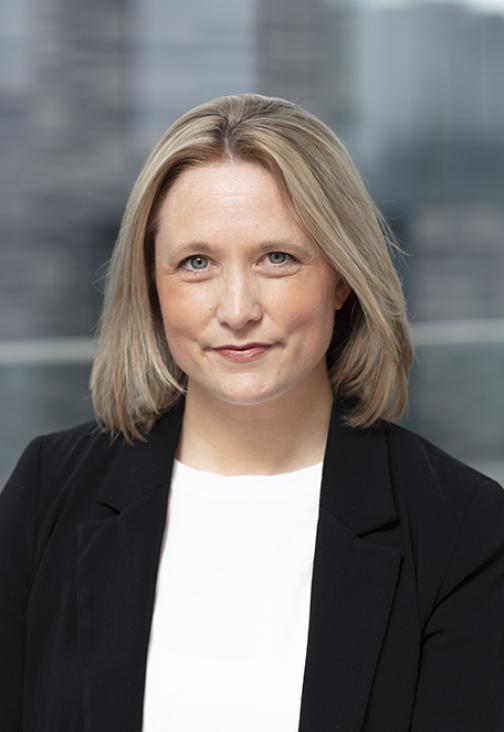
We understand that trusts can at first sight appear complex, but they do not need to be. Our expert Private Client lawyers in Edinburgh and Glasgow, are on hand to provide clarity and discuss with you how trusts might be a valuable addition to your estate planning strategy.
If trusts are a suitable option for you, we'll provide comprehensive advice on setting up the most appropriate trust to suit your specific needs. We'll also offer ongoing guidance on any necessary administration and compliance requirements.
What is a trust?
A trust is a way of holding assets were nominated trustees are given responsibility to hold a trust fund on behalf of a particular individual or group of people known as the 'beneficiaries'. The person setting up the trust (known as the 'settlor') decides on the trustees and the beneficiaries and sets out the rules for operation of the trust in a document known as the trust deed. They then transfer the assets (the trust fund) to the trustees. It is possible to hold almost any type of property within a trust.
Once appointed by the settlor, it is the responsibility of the trustees to manage those assets (the trust fund) on behalf of the beneficiaries. Depending on the type of trust, the trustees might have very broad powers to decide how the trust fund is applied for those beneficiaries. Often in situations where the trustees are given a lot of discretion, the settlor will prepare a Letter of Wishes, a document that sets out their views and helps to guide the trustees in their task of administering the trust.
A trust can be set up during the lifetime of the settlor, or under their Will, and so while setting up a trust during your lifetime might not be right for you, it may be part of the conversation when you come to prepare a Will. To find out more about our services, visit our Wills page.
Why set-up a trust?
Trusts are versatile and when set up properly can be used for a variety purposes. However, trusts are typically used for protection, whether of particular assets, or beneficiaries. A trust provides a structure where the ownership and management of assets is handled by trustees, who are separate from the individuals or group of people that are expected to benefit from them. The settlor can choose the most suitable individuals to manage the trust fund, while ensuring that the fund remains accessible to those they intend to benefit.
So the use of trusts can form an important part of your estate and tax planning in a number of ways. Some examples include:
- Protecting assets for those who are too young to be able to handle their own affairs, and in particular too young to manage an inheritance.
- Allowing assets to be managed on behalf of beneficiaries who are incapable of doing so for any reason - such as disability, addiction, or debt. Assets held in trust do not belong to the beneficiaries, and so are protected from the risk that they might be mismanaged or subject to the claims of creditors.
- Establishing trust funds for the benefit of future generations, passing on wealth while effectively reducing the Inheritance Tax exposure of the settlor.
- Holding funds received as part of a Personal Injury settlement in an appropriate structure that is efficient for tax purposes.
- Setting up a charity - there are lots of different ways to structure a new charity, but many are established as charitable trusts. These are subject to a specific tax and regulatory regime. For more information on charities, see our Charities and Third Sector page.
Types of trust
There are a number of different types of trusts available, giving you the flexibility to select an option that supports the objectives of you and your family. Our expert team will be able to discuss whether a trust is something that should be considered as part of your estate and succession planning.
For example, 'interest in possession' trusts give particular beneficiaries a particular fixed interest in the income arising from the trust fund while protecting the underlying capital for other beneficiaries.
Discretionary trusts are different, giving trustees a very broad discretion over the use of both income and capital. These will name a broad class of potential beneficiaries who do not have any particular entitlement, but only the right to be considered by the trustees.
Different types of trust fall within different regimes for tax purposes, and it is very important to take advice to ensure that as well as meeting your succession planning requirements, any trust is set up as efficiently as possible for tax purposes. Certain beneficiaries - such as disabled persons and charities - will be eligible for more favourable tax treatment. Visit our Tax page to learn more.
How we can help
We understand that setting up a trust can seem daunting, that's why our experienced team of Private Client lawyers, based in Edinburgh and Glasgow, is here to support you every step of the way.
Once determined whether a trust is the right option for your estate planning needs, we'll work closely with you throughout the whole process, from discussing the best type of trust to use and your selection of trustees, to preparing an appropriate trust deed. Setting up a trust does come with a number of compliance requirements, and our team will ensure that these are easily met.
Our support doesn't end once your trust is established. We'll continue to provide ongoing advice and administration throughout the lifetime of your trust. As experts in trusts, we can also provide guidance to trustees and beneficiaries about their duties, making sure everyone involved has a clear understanding of their roles.
If you would like to discuss the process of setting up a trust, as well as learn more about our fee options please contact our team of trusts experts.












